Test Execution
If a test is specified with test steps and test conditions, you have the option to execute the test case manually. Open a test case and click on Run.
A new window is opened, where you can enter the tested version and choose the value set. The value set is described in Variable Manager. By entering Tested Version, you can click on Run.
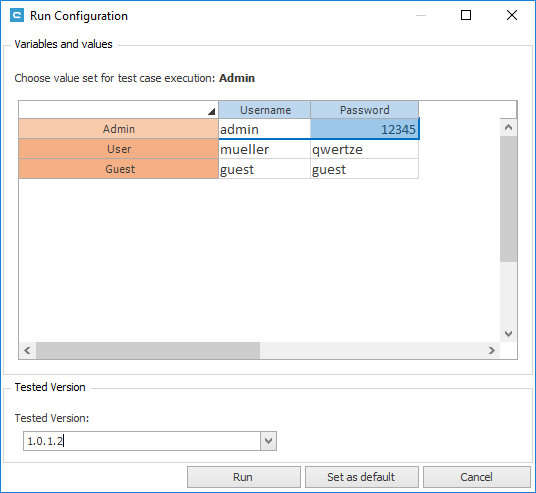
We are executing the example of Stepplaner now. A new window is opened, and you can enter something in Actual results.
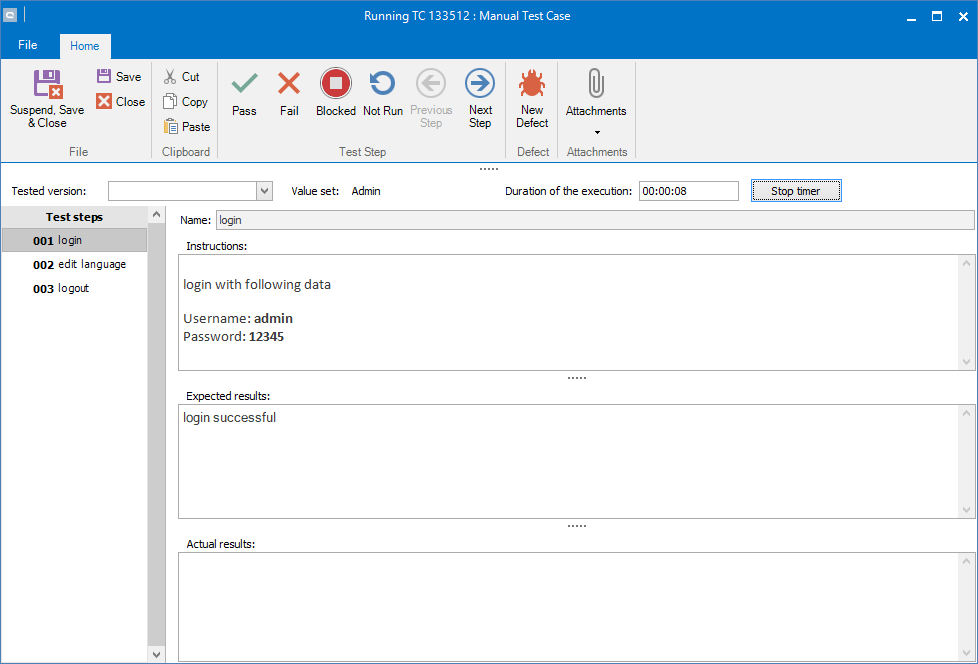
The step is passed, so we click on button passed. The first step is green, and the next step is displayed automatic.
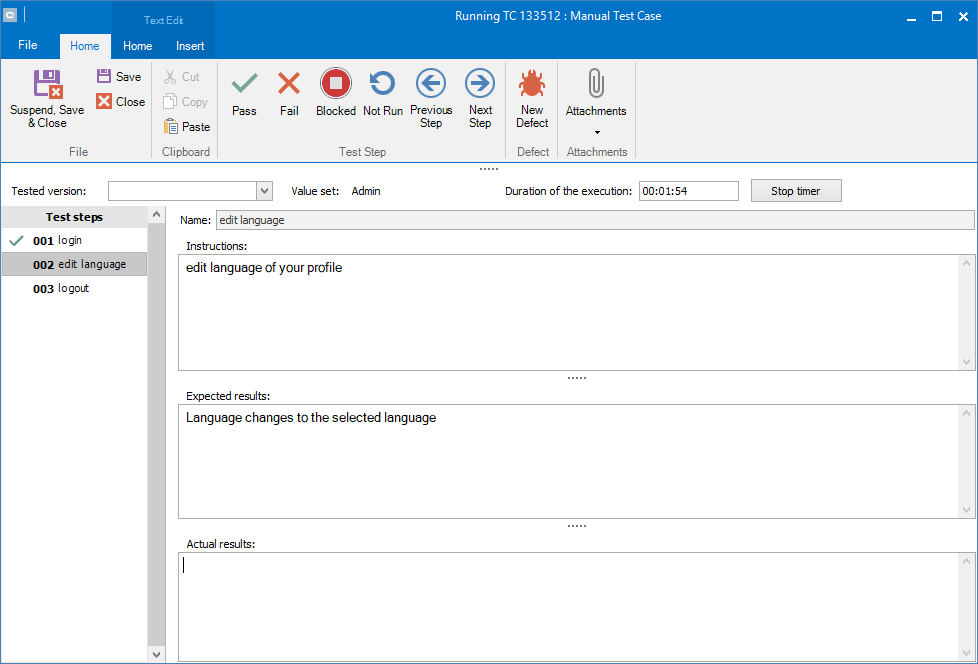
The second step is a test step. Here we find an Instruction and Expected results. Moreover, we find an extra field Actual results, where we can document the result we receive while executing. We are documenting the result as the following:
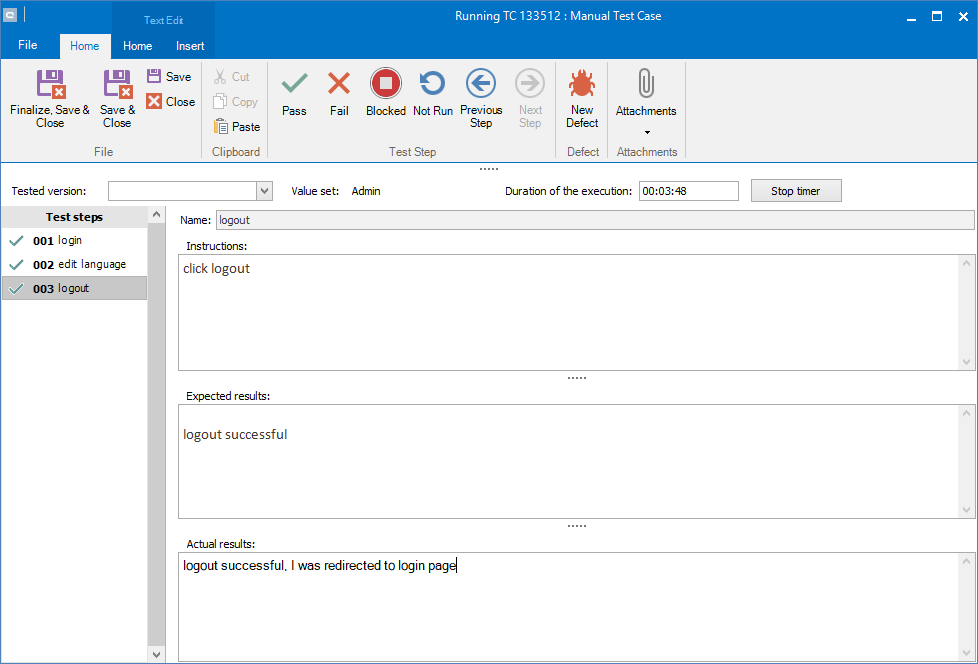
The test is completed, so click on Save & Close. The test was executed, and the execution can be found at the bottom of the test case.

By double-clicking on an execution, you can open the test execution in order to analyse the test results.
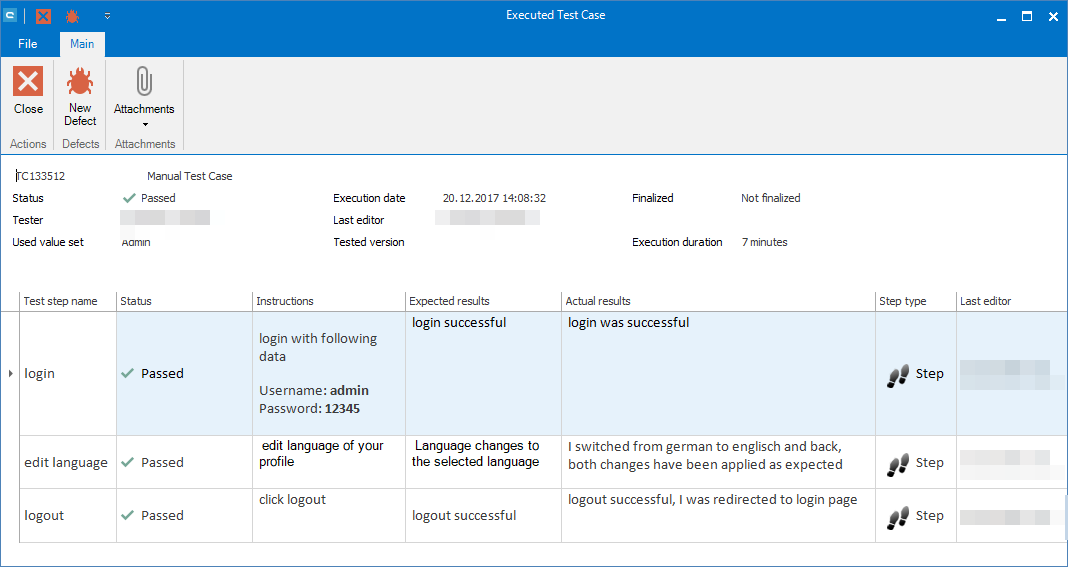
Clicking the Continue button can continue an executed test case. Test results can be specified again. Furthermore, an execution can be marked as Irrelevant if a test execution is defective.
An executed test case may be continued. In order to do so, mark a test execution and click on the  button.
button.
The test execution is continued, enabling you to change all information. Furthermore, the identity of the last test step editor is saved. If a manual test case is executed, you can finalize the test execution. This means that from this point onwards, test cases can no longer be continued or changed.
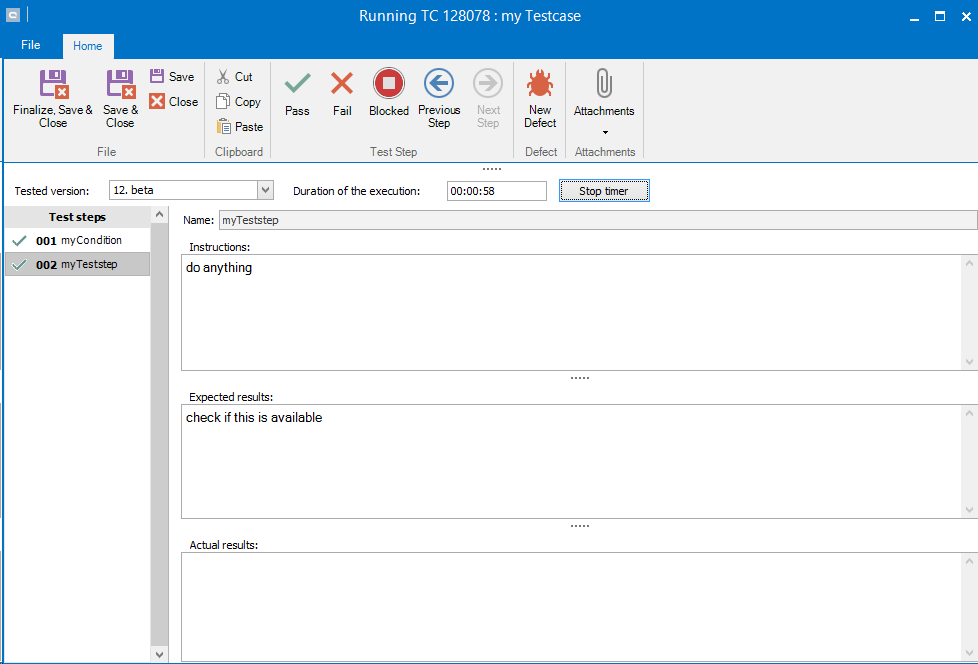
Last updated
Was this helpful?